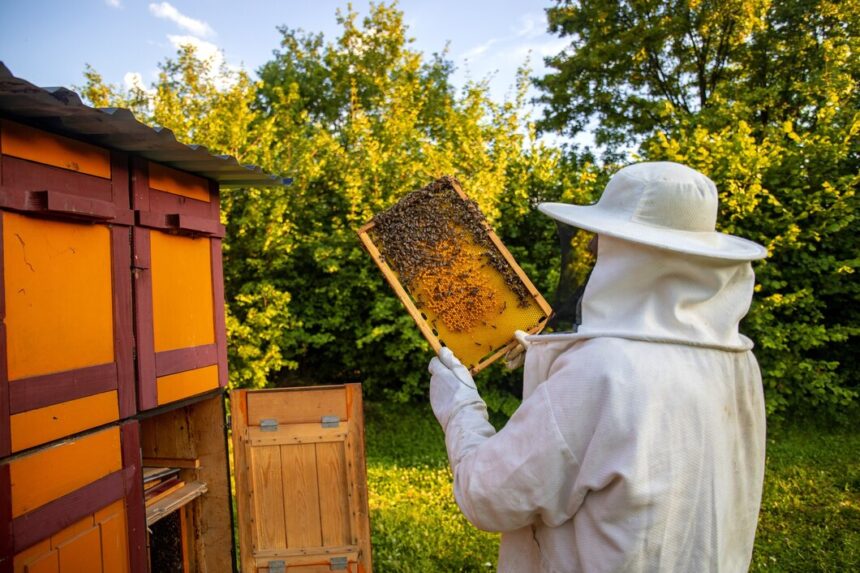Beekeeping and pollination play pivotal roles in South Africa’s agricultural ecosystem, contributing to crop productivity, biodiversity, and food security. As global awareness of pollinator decline grows, fostering beekeeping practices and enhancing pollination services are crucial. Here are ten effective strategies to promote beekeeping and pollination in South Africa:
1. Education and Training Programs:
Launch educational initiatives to raise awareness about the importance of bees and pollinators. Provide training programs for aspiring beekeepers on hive management, bee health, and sustainable practices.
2. Support for Small-Scale Beekeepers:
Provide financial support, grants, or subsidies to small-scale beekeepers to establish and expand their operations. Facilitate access to beekeeping equipment, protective gear, and initial colonies of bees.
3. Pollinator-Friendly Farming Practices:
Encourage farmers to adopt pollinator-friendly farming practices such as reduced pesticide use, diverse crop rotations, and planting of bee-attractive flowering plants as cover crops or hedgerows.
4. Establishment of Bee Sanctuaries and Reserves:
Create protected areas and reserves specifically for bees and other pollinators. These sanctuaries serve as habitats where native bee species can thrive and contribute to local biodiversity.
5. Research and Development Initiatives:
Invest in research to understand local bee species, their behaviors, and habitat requirements. Develop improved beekeeping techniques, pest management strategies, and breeding programs for resilient bee colonies.
6. Partnerships with Agricultural Communities:
Collaborate with agricultural communities, cooperatives, and associations to integrate beekeeping into existing farming systems. Foster knowledge exchange and joint initiatives to enhance pollination services.
7. Urban Beekeeping Programs:
Promote urban beekeeping initiatives by supporting rooftop gardens, community gardens, and green spaces that provide forage opportunities for bees. Raise public awareness about urban pollinators and their role in city ecosystems.
8. Public Awareness Campaigns:
Launch public awareness campaigns to inform consumers, businesses, and policymakers about the benefits of pollination and the role of bees in agriculture. Encourage sustainable consumption choices that support pollinator-friendly practices.
9. Incentives for Biodiversity Conservation:
Offer incentives and recognition programs for landowners who implement biodiversity conservation measures that benefit pollinators. Support agro-ecological approaches that enhance ecosystem resilience and pollination services.
10. Policy Support and Advocacy:
Advocate for policies that prioritize pollinator health and habitat conservation. Collaborate with government agencies, NGOs, and stakeholders to develop and implement regulations that safeguard pollinators and promote sustainable beekeeping practices.
Implementing Strategies for Success:
Successful implementation of these strategies requires collaboration among government agencies, NGOs, farmers, researchers, and beekeeping associations. Regular monitoring and evaluation of bee populations and pollination services help assess the impact of interventions and guide future initiatives.
By promoting beekeeping and enhancing pollination services in South Africa, stakeholders can protect biodiversity, support agricultural productivity, and ensure food security for current and future generations. Together, these efforts contribute to a sustainable and resilient agricultural sector that values and conserves vital pollinator species.
Join 'Farmers Mag' WhatsApp Channel
Get the latest Farming news and tips delivered straight to your WhatsApp
CLICK HERE TO JOIN






